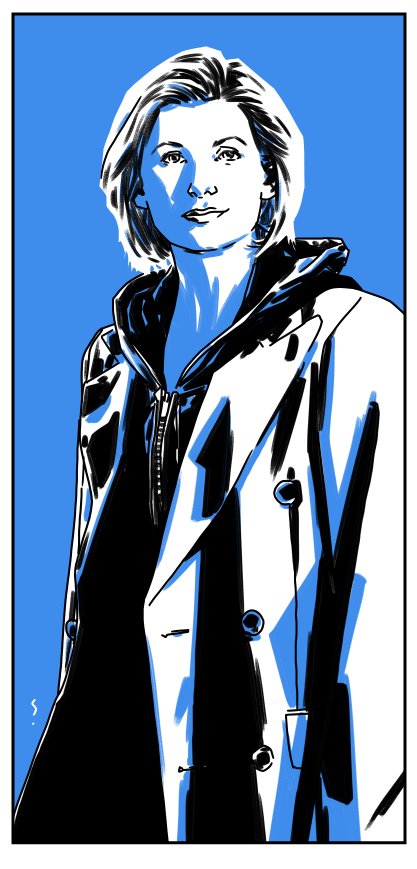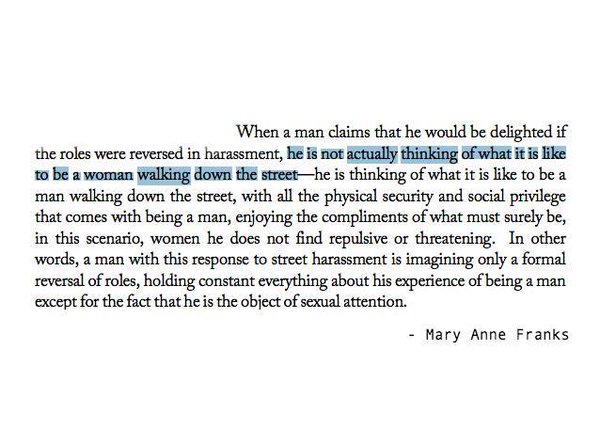Carrie Fisher. Robin Wright. Gal Gadot. Daisy Ridley. Melissa McCarthy & Leslie Jones & Kate McKinnon & Kristen Wigg. Jodie Whittaker. It shouldn’t matter. It shouldn’t matter, but it goddamn well does. You know why I chose the women I did, up above? You know why I didn’t include Weaver & Hamilton & Theron on that list? Because Ripley and Connor and Furiosa were given to us. They were put on the table by filmmakers who said either “it doesn’t matter if this character’s a woman or a man,” or…
Category: SFFragette
Good Guys & Responding to Womens’ Sexual Harassment
A friend of mine over on Facebook posted link to this article, Why Women Smile At Men Who Sexually Harass Us, which is a good article full of things that are tiresomely familiar to virtually all women and apparently continue to be surprising to many, perhaps most, men. I think it’s a good article for men to read, because what prompted her writing it was how the author’s boyfriend, who is, by her estimation, one of the good guys, responded not only to her being harassed, but to her *reaction*…
First SFF?
My friend Kari Sperring (who is one of those writers whose prose just makes me want to weep with envy) has been putting up terrific questions and commentary over on Twitter. Today’s question (which can be followed at the tag #1stSFFReads) is “What was the 1st sff book you read? The 1st by a woman? By a writer of colour?” As it happens, the first SFF novel I read was *by* a woman: THE CITY UNDER GROUND, by Suzanne Martel. It was published when I was two; I read it…
SFFragette
Kari Sperring* introduced the utterly magnifient tag SFFragette over on Twitter a few days ago, as a term to embody the push-back against sexism in SFF. It now has a Facebook page, a Twitter feed, and a blog. These are fantastic places to follow the ongoing discussion. I ottally lack the spoons to link to all the great posts and talks that are happening, so if you’re one of my readers and have any interest in the topic, there’s your source for news. That said, here’s a link I think…

